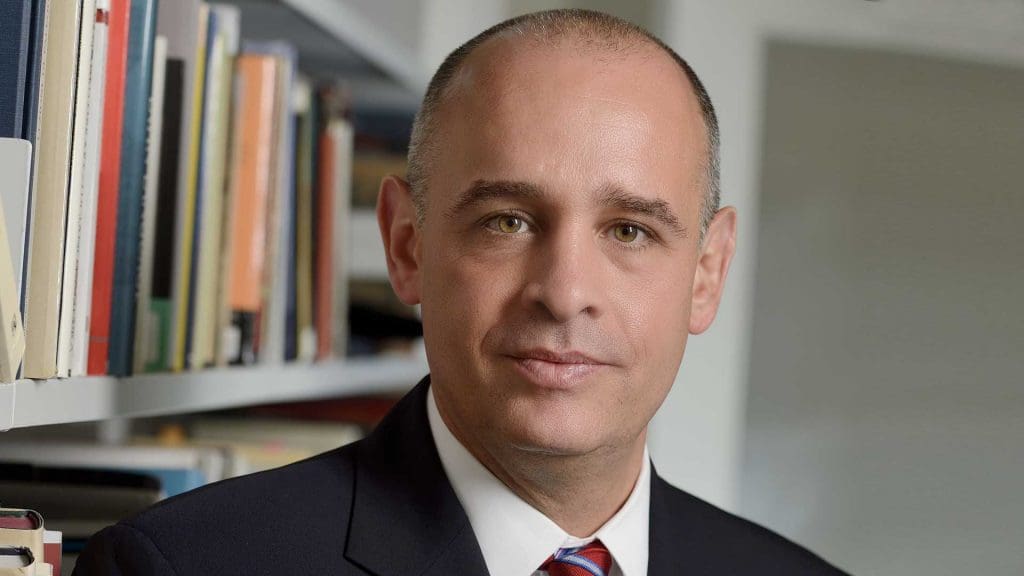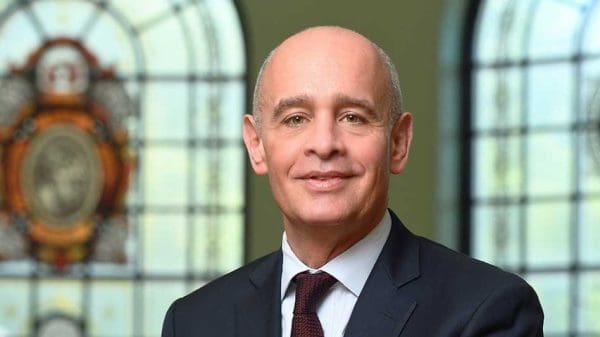
I am delighted to be writing to you as the new dean of the Krieger School of Arts and Sciences, a role I assumed on January 4. Having served on the faculty here and in the Provost’s Office in the past, this is a homecoming for me.
Because of the pandemic, my arrival at Hopkins has, for the most part, been virtual. To say that this spring semester has been different would be an extreme understatement. For the past year, our professional and personal lives have been upended in ways great and small. I have been moved and impressed by the innovative ways in which our faculty, staff, and students have adapted to challenging circumstances and forged new paths to continue their research and scholarship. We have even had some researchers pivot from their usual work to study COVID-related issues. It truly is a testament to the resilience and perseverance that defines Johns Hopkins.
Despite the limitations caused by COVID-19, not a day goes by at the School of Arts and Sciences where there’s not a discovery made, seeds of new knowledge planted, or a pioneering partnership formed. The academic pursuits of our departments and our individual areas of expertise are vast. Whether it’s chemistry or art history, biophysics or economics, philosophy or political science, we are all united by one thing: the pursuit of truth.
As an engine of unfettered inquiry, the Krieger School of Arts and Sciences is poised to move to its next level of excellence.”
—Christopher S. Celenza
In these polarizing days of conspiracy theories and false statements, our scholars and researchers continuously work to make sure that the truth always rises to the top. It’s the only way to expand the boundaries of knowledge.
As an engine of unfettered inquiry, the Krieger School of Arts and Sciences is poised to move to its next level of excellence. On the horizon are the groundbreaking for the SNF Agora Institute building on the Homewood campus and renovation of the recently acquired property at 555 Pennsylvania Avenue in Washington, D.C. Both of these capital projects will offer multiple platforms for critical work for faculty and students.
I’m also excited about another ambitious undertaking—the implementation of recommendations made by the Second Commission on Undergraduate Education (CUE2). You can read more about CUE2 in our feature section, but suffice it to say it will redefine the undergraduate experience at Johns Hopkins. The world has changed enormously in the past 10 years with new and rapidly developing technologies, greater global awareness, political upheavals, and of course, a worldwide pandemic. Our students must be prepared to think critically, solve complex problems, and understand global dynamics. In a world in which information is coming at them from all sides, they need to have experience making knowledge—in short, in engaging in the work of discovery that lies at the heart of the Krieger School. We want our students to graduate with the tools they need to be engaged citizens of the world.
As I watch the increase in vaccinations across the country and—at least for now—the number of deaths and hospitalizations slowly decline, I anticipate the days when I can walk across campus, stop to chat with students, perhaps grab an impromptu coffee with a professor, and embrace the “new normal” of campus life, whatever it ends up being. I know that—as one Hopkins family—we will ride out these days of the pandemic and reach the other side with new ideas to explore and inventive ways to connect with one another.
I am keenly aware of the critical role our alumni play—you are ambassadors for our school—and I look forward to meeting many of you (hopefully in person) in the coming months and years. I am grateful for your support and dedication to Johns Hopkins.
Sincerely,
Christopher S. Celenza
James B. Knapp Dean


